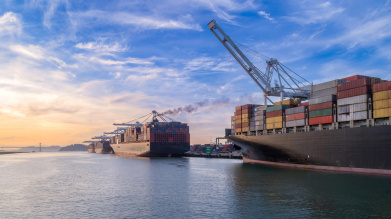Economy of Trust: Business and Banks Build Bridges between Central and South Asia
20.05.2025 | 16:20 |Termez, Uzbekistan, May 20 | ORIENT. Following a first session filled with diplomatic and strategic discussions, the Termez Dialogue turned to fundamental issues of economic connectivity. The second session, which brought together heads of Chambers of Commerce and Industry, representatives of the private sector and financial institutions from the region, provided a platform for substantive discussions on the key role of business in strengthening ties and ensuring sustainable economic growth.
The focus was on the active participation of the private sector, which today is the driving force of innovation and development around the world. The discussions confirmed that the path to prosperity lies through creating a reliable platform for business activity, attracting investment and introducing advanced technologies.
Vision of Turkmenistan: The Private Sector as a Driver of Integration
Among the speeches was a report by Vepa Aganiyazov, Head of the Department of Foreign Economic Activity of the Chamber of Commerce and Industry of Turkmenistan. He began his speech with a quote from National Leader of the Turkmen people, Chairman of the Khalk Maslakhaty of Turkmenistan Gurbanguly Berdimuhamedov: "Peace, trust, equality and mutual benefit should form the basis of economic partnership. Any large economic, infrastructure, trade and investment projects can be successful only under the condition of equality and mutual trust."
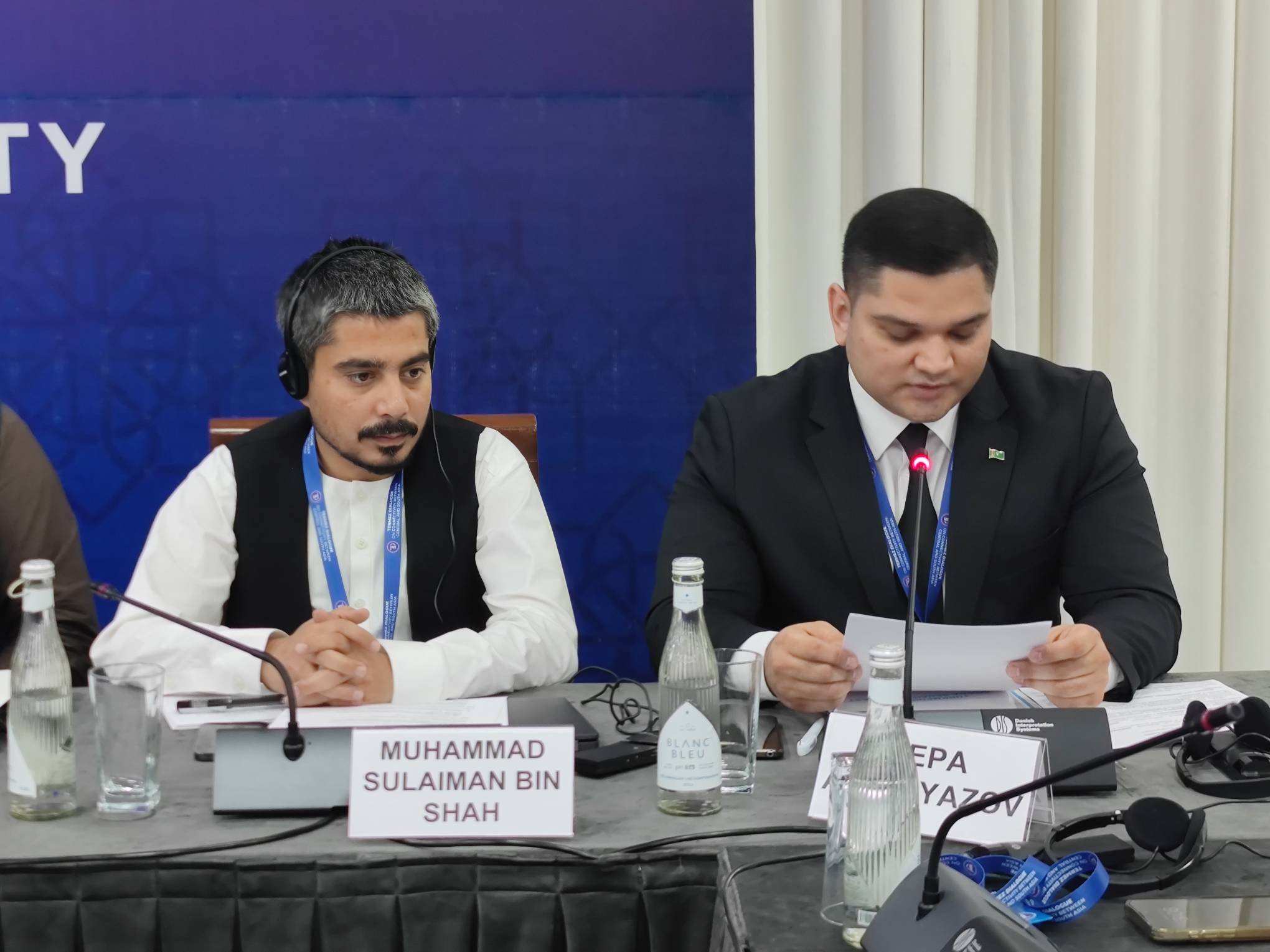
These are the principles, according to the representative of the Chamber of Commerce and Industry of Turkmenistan, that determine the strategic economic course of the country. Located in the heart of Eurasia, Turkmenistan is actively developing its economy, focusing on deep integration with neighboring countries and the expansion of trade relations in the international arena. The state provides comprehensive support to private entrepreneurship, creating a strong legislative framework and a favorable investment climate. An example of such trust in business is the transfer of large infrastructure projects to the private sector, such as the construction of the Ashgabat-Turkmenabat high-speed highway. This route not only connects the regions of Turkmenistan, but also serves as an important link between Central and South Asia, strengthening the transport and logistics potential of the entire region.
The Chamber of Commerce and Industry of Turkmenistan, as a key coordinator of exhibition and congress events, plays an indispensable role in stimulating international business cooperation. The CCI actively promotes the establishment of direct contacts between Turkmen and foreign business circles, creating platforms for dialogue, exchange of experience and conclusion of mutually beneficial agreements.
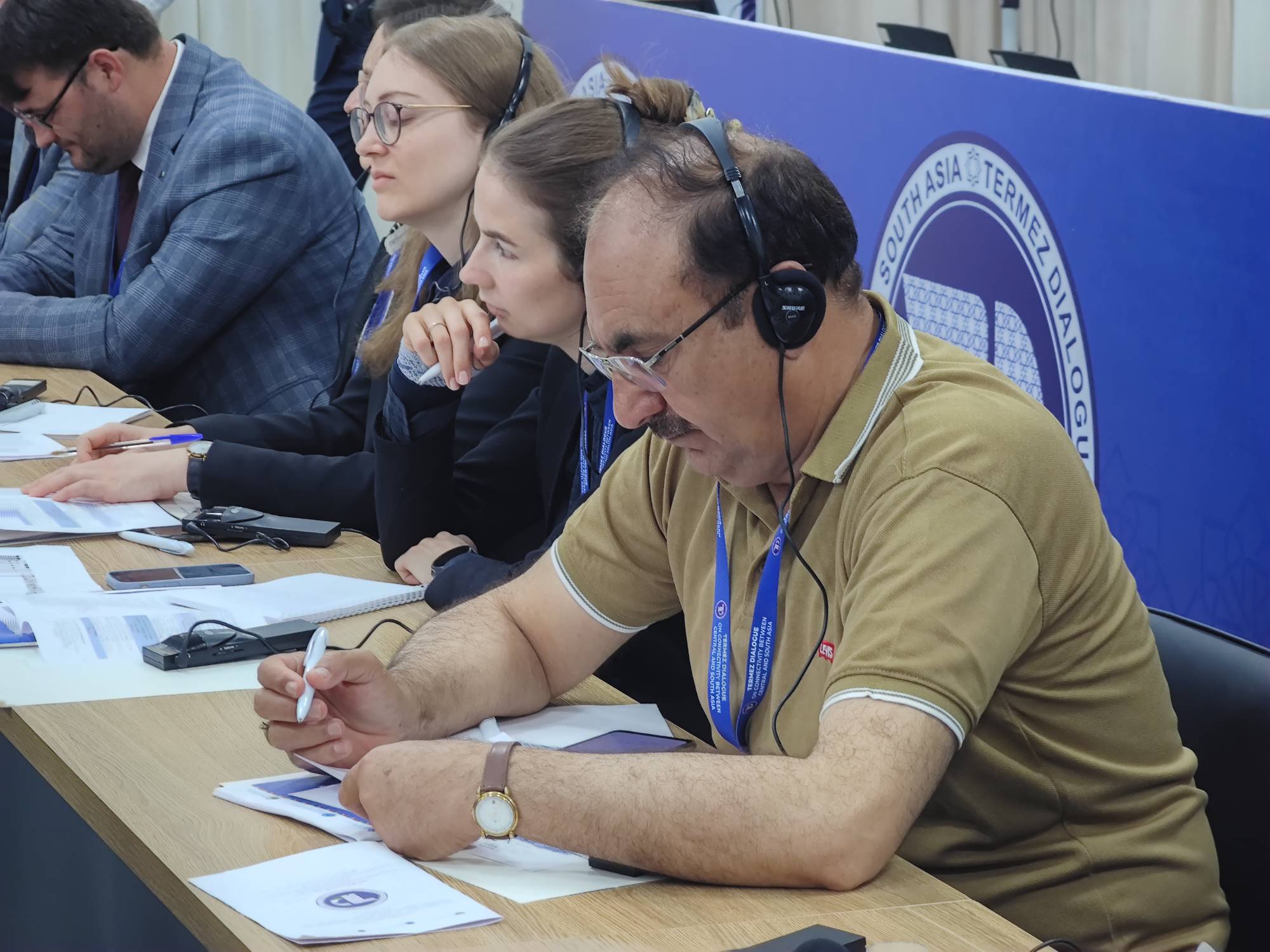
Financial Partners and Growth Prospects
A key aspect of successful economic development and implementation of large-scale projects is the attraction of international financial partners. In this context, the successful and long-term work of Turkmenistan with the European Bank for Reconstruction and Development (EBRD) was noted, within the framework of which more than 80 projects in various sectors have already been implemented.
The session was also attended by Chairman of the Chamber of Commerce and Industry of Uzbekistan Davron Vakhabov, heads and representatives of the CCIs of Afghanistan, Kazakhstan, Kyrgyzstan, Pakistan and Tajikistan, and the administrative head of the CCI of Bangladesh joined the dialogue online.
The financial sector was represented by such major players as Uzpromstroibank, Afghan Ghazanfar Bank and Azizi Bank, as well as the founder and head of the consulting company Catalyst Suleiman bin Shah, who presented an innovative Regional Platform for supporting private sector interaction.
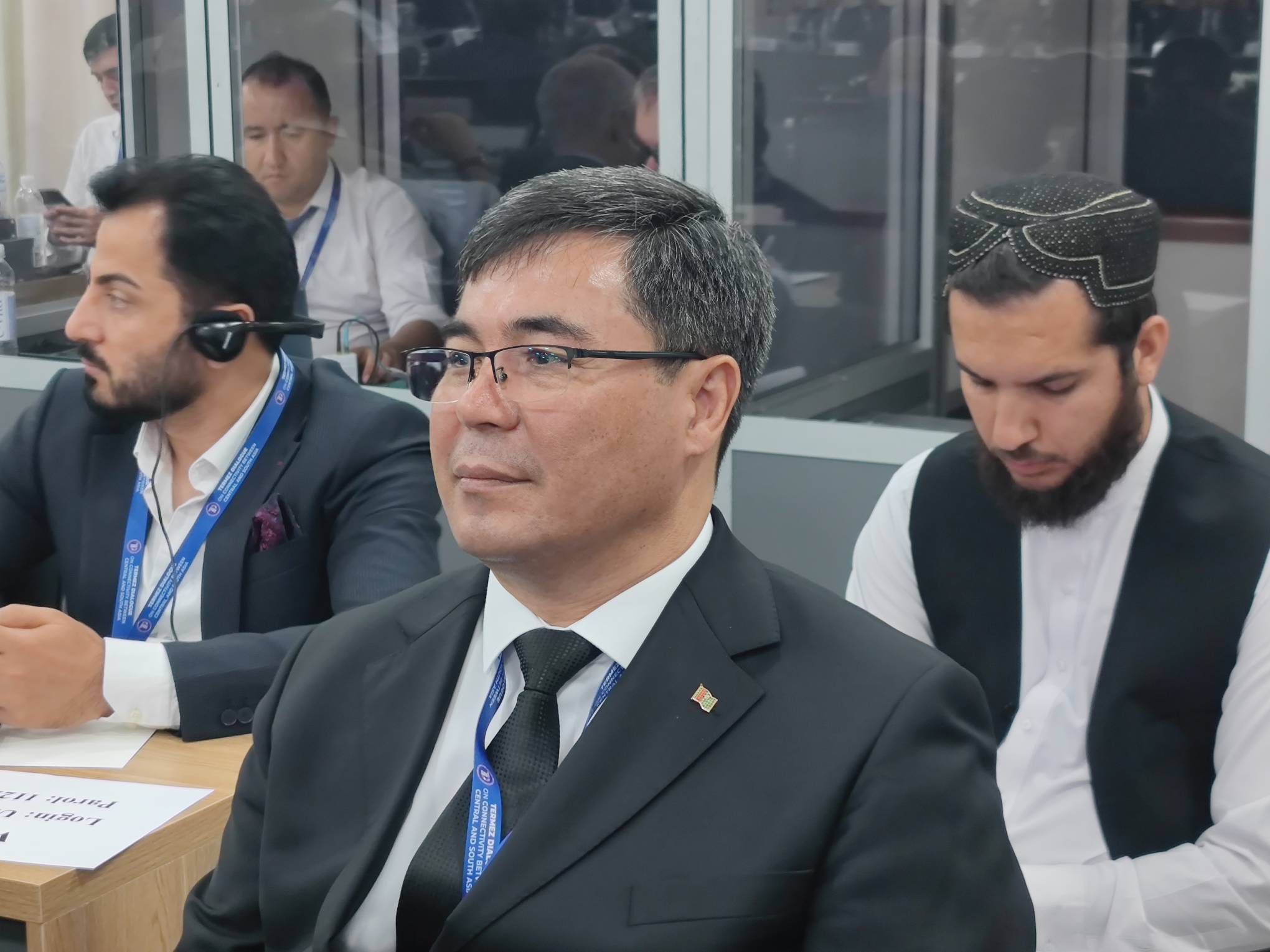
The session participants agreed that cooperation with international financial institutions undoubtedly opens up broad horizons for attracting capital, implementing innovations and increasing the sustainability of economies. Only by relying on joint efforts and continuing constructive cooperation between private structures will regions be able to achieve a qualitatively new level of economic integration, ensuring reliable interconnectivity and long-term sustainable development for the benefit of their peoples.
What to Expect Tomorrow: Expert Dialogue and New Perspectives
Tomorrow, on May 21, the Termez Dialogue will continue its work. The main event of the day will be an expert dialogue on regional connectivity. The sessions, moderated by First Deputy Director of the Institute for Strategic and Interregional Studies under the President of Uzbekistan Akramjon Nematov, and then by Director of the Center for Foreign Policy Research and International Initiatives Sanjar Valiyev, will bring together leading analysts and scholars from different countries.
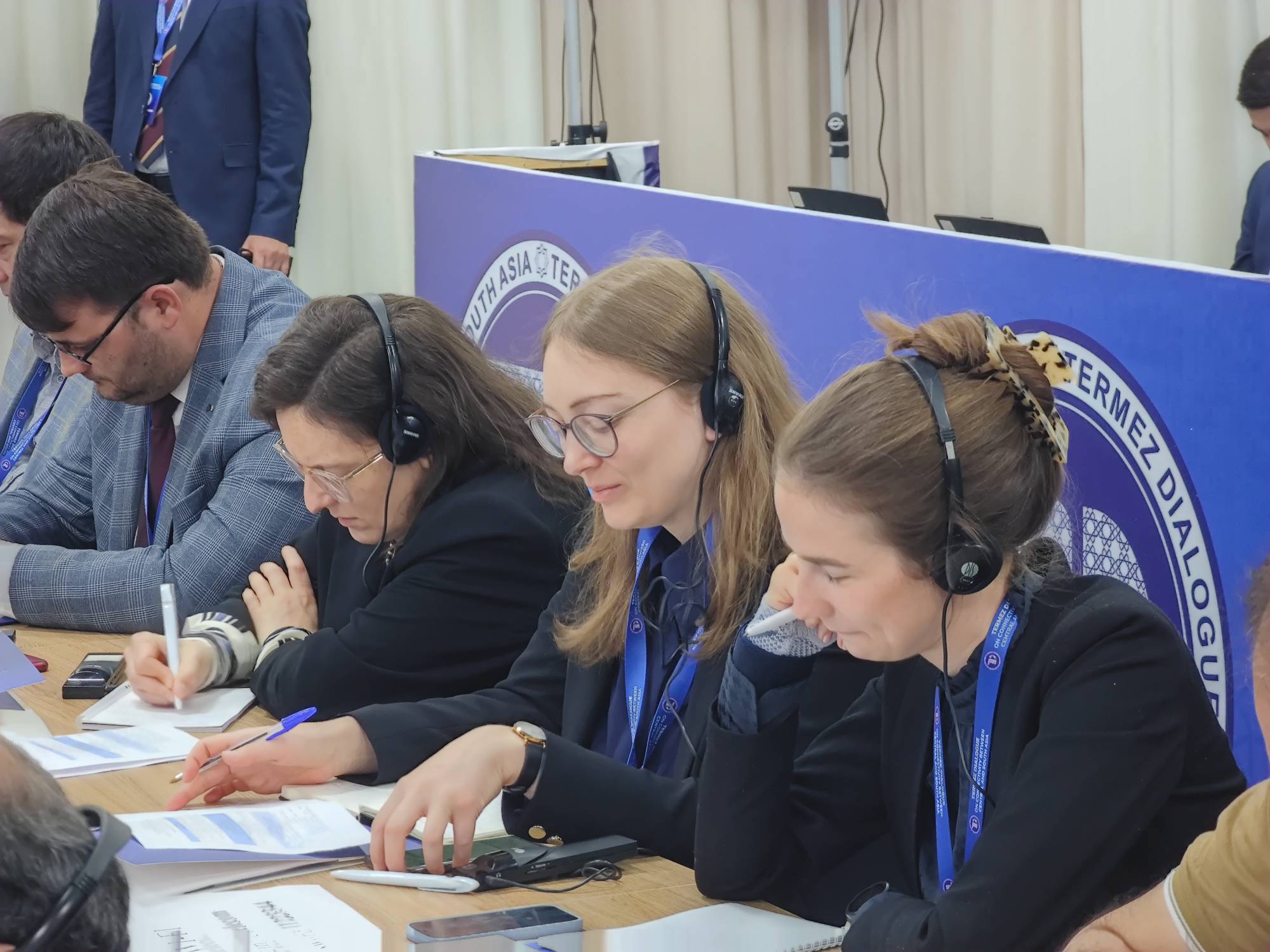
Participants include representatives of key research centers from Kazakhstan, Kyrgyzstan, Tajikistan, Uzbekistan, and Turkmenistan. Experts from Afghanistan, India, Azerbaijan, Pakistan, the United States, Russia, China, Georgia, Armenia, Turkey, the United Kingdom, Qatar, and Finland are expected to speak, promising an even deeper and more comprehensive analysis of the challenges and opportunities in the region. The day will end with a wrap-up and a visit to the Educational Center for Afghan Citizens.
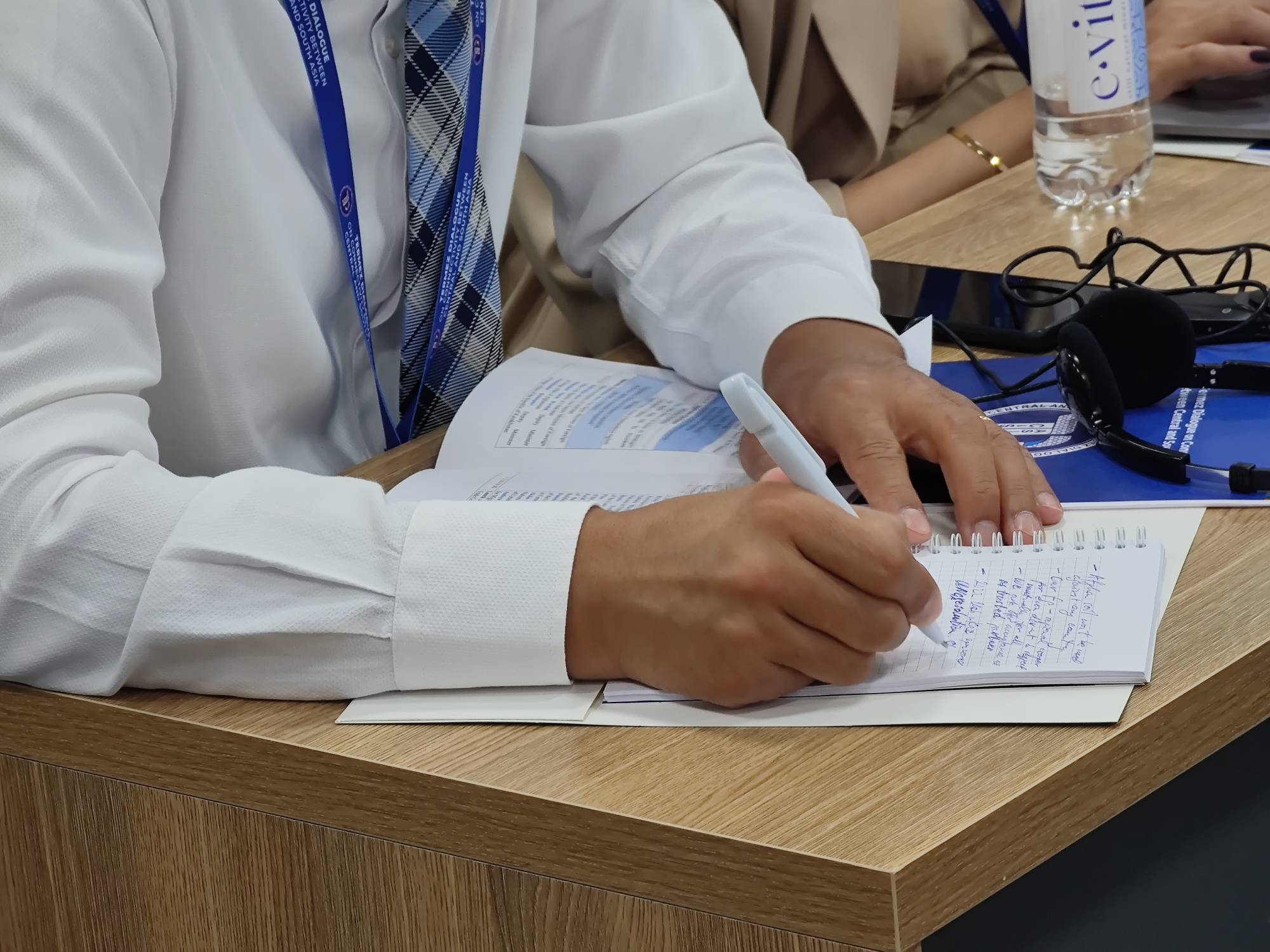
The work of the Termez Dialogue continues, and ORIENT remains at the center of events to promptly inform readers about the progress of its meetings and current initiatives.
Bekdurdy AMANSARYEV











